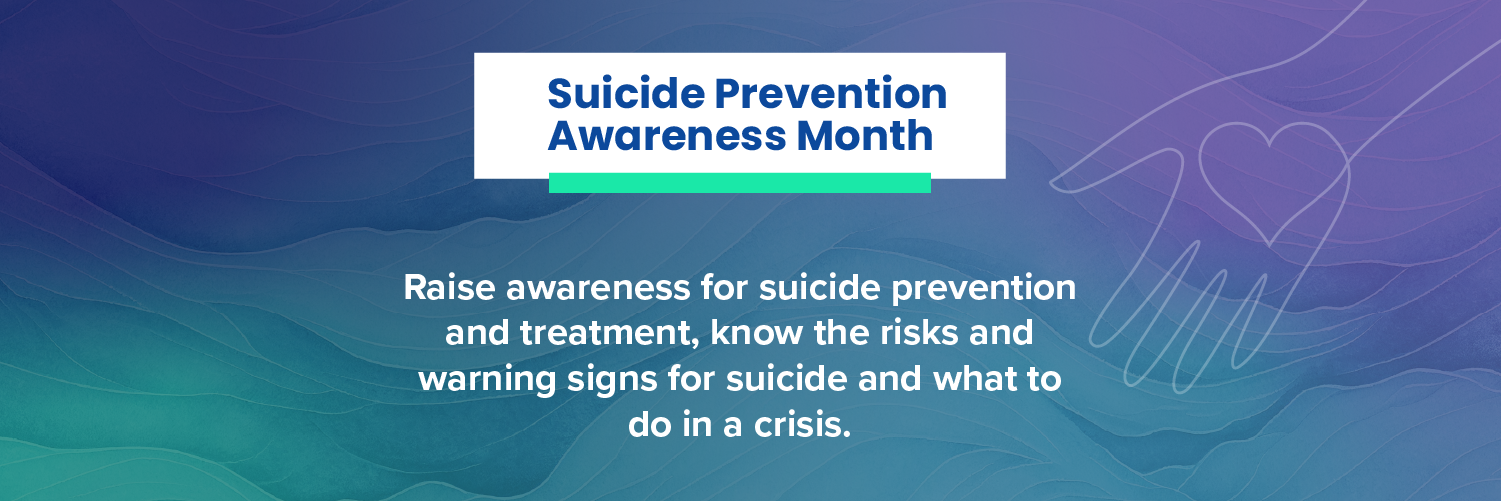September is a month that carries a significant message: it’s Suicide Prevention and Awareness Month. In a world where mental health is an ever-pressing issue, organizations and leaders must lead with compassion, step up, and make a difference.
We can’t afford to ignore the pain that so many individuals silently endure. This blog post explores the importance of this month, discusses the role of organizations, and provides practical advice for leadership.
Understanding the Significance
Suicide is a global issue, affecting millions of lives each year. It transcends age, race, gender, and socio-economic status. Yet, despite its prevalence, the stigma surrounding mental health persists. September serves as an opportunity to break down these barriers, raise awareness, and save lives.
NAMI: A Beacon of Hope
One organization at the forefront of this battle is the National Alliance on Mental Illness (NAMI). NAMI’s tireless efforts to educate, advocate, and support individuals and families affected by mental illness make them an essential ally in the fight against suicide. As leaders, it’s crucial to partner with organizations like NAMI to amplify the impact of our initiatives.
Throughout the month, the National Alliance on Mental Illness (NAMI) will be sharing information and resources to help organizations ensure that individuals, friends, and families have access to the resources they need to discuss suicide prevention and to seek help.
- Utilize our Suicide Prevention Awareness Month Partner Guide.
- Spread the word about 988 and available support.
- Reference and share the NAMI 988 Crisis Response State Legislation Map so individuals can learn more about what legislation in moving in their states and across the country.
The Role of Organizations
Promote a Safe Environment: Create a culture where employees feel safe discussing their mental health. Encourage open dialogue and provide resources for those in need. Normalize seeking help.
Training and Education: Invest in mental health training for your workforce. Equip them with the knowledge and skills to recognize signs of distress in themselves and their colleagues.
Flexible Policies: Offer flexible work arrangements and policies that accommodate mental health needs. Recognize that everyone’s journey is unique, and flexibility can go a long way in providing support.
Community Engagement: Engage with organizations like NAMI to participate in events, fundraisers, or awareness campaigns. Show your commitment to the cause through actions, not just words.
Leadership Matters
As a leader, your actions set the tone for your organization. Here are some tips on how to lead with compassion:
Lead by Example: Share your own struggles and vulnerabilities when appropriate. This humanizes you and shows that seeking help is a sign of strength, not weakness.
Check-In Regularly: Make it a habit to check in with your team members. Ask them how they’re doing, not just professionally but personally. Show genuine interest in their well-being.
Provide Resources: Ensure your employees are aware of the mental health resources available to them. Make sure they know how to access support when needed.
Normalize Time Off: Encourage employees to take time off when they need it. Burnout and stress can exacerbate mental health issues, so time for self-care is crucial.
Training for Leaders: Just as employees need training, leaders should also undergo mental health training. This will enable you to recognize signs of distress in your team and provide the right support.
In Conclusion
September’s Suicide Prevention and Awareness Month serves as a reminder that we must prioritize mental health in our organizations and leadership roles. We can’t afford to be passive observers when lives are at stake. Partner with organizations like NAMI, create a supportive environment, and lead with compassion. Let’s make a difference, one conversation and one action at a time. Together, we can be the change that saves lives.
The Execs In The Know community has always cared deeply – not just about the advancement of our industry but also for each other.
The world continues to face a significant long-term mental health crisis. An important first step in tackling this problem is to reduce the stigma associated with seeking mental health help. Companies can help play a pivotal role creating a stigma-free society and learning more about mental illness and the conditions associated with it.





















































































































 TELUS Digital
TELUS Digital ibex delivers innovative BPO, smart digital marketing, online acquisition technology, and end-to-end customer engagement solutions to help companies acquire, engage and retain customers. ibex leverages its diverse global team and industry-leading technology, including its AI-powered ibex Wave iX solutions suite, to drive superior CX for top brands across retail, e-commerce, healthcare, fintech, utilities and logistics.
ibex delivers innovative BPO, smart digital marketing, online acquisition technology, and end-to-end customer engagement solutions to help companies acquire, engage and retain customers. ibex leverages its diverse global team and industry-leading technology, including its AI-powered ibex Wave iX solutions suite, to drive superior CX for top brands across retail, e-commerce, healthcare, fintech, utilities and logistics.






















 Trista Miller
Trista Miller



























